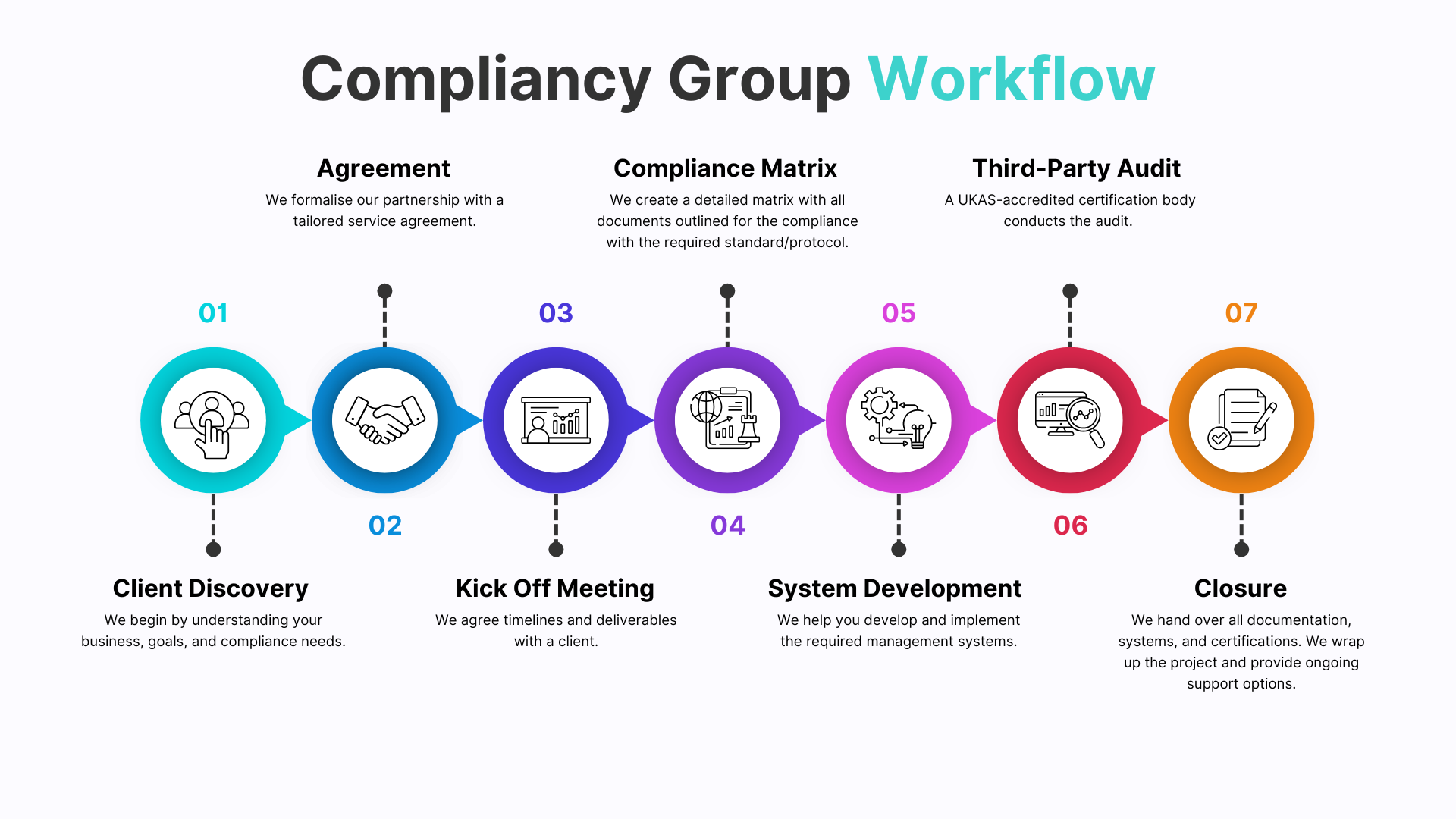We're Here To
Help
A Fire Alarm System Test is a critical inspection designed to ensure your fire alarm systems are fully operational, compliant with safety regulations, and ready to protect people and property in an emergency. Regular testing demonstrates your business’s commitment to safety, legal compliance, and risk management – trusted by clients, partners, and regulators across all sectors. With effective fire alarm testing, you minimise the risk of fire-related incidents and show your dedication to maintaining a safe environment. Compliancy Group guides you through every step – making fire safety compliance clear, practical, and a genuine business advantage.
We understand the complexities of fire safety regulations and the importance of reliable alarm systems. Our team brings hands-on experience with fire alarm testing, maintenance, and industry best practices.
No one-size-fits-all here. Whether you need routine fire alarm testing, maintenance planning, compliance advice, or documentation support, our services are fully customised to your needs. We offer flexible support packages—from essential guidance to comprehensive on-site consultancy.
We work exclusively with UKAS-accredited certification bodies and maintain a 100% pass rate for compliance assessments. Our clients trust us to deliver results that stand up to audit and regulatory scrutiny—helping you achieve, maintain, and leverage fire safety compliance for business growth.
Compliance shouldn’t slow you down. We help you build safer environments, reduce risk, and improve operational efficiency—so you can focus on your core business.
You’ll work directly with our expert team, including leadership involvement from our CEO. We pride ourselves on responsive communication, clear guidance, and ongoing support throughout your compliance journey.
Demonstrate compliance to secure contracts and reassure clients or insurers.
Show your commitment to safety and legal responsibilities.
Minimise the risk of fire-related injuries, property damage, and costly liabilities.
Enhance your standing as a responsible and trusted organisation.
Regular tests and compliance checks foster a culture of ongoing safety and operational excellence.
Strengthen Reputation
From initial testing to ongoing support, our team ensures you’re always prepared and confident.
We streamline compliance processes, freeing up your team to focus on core business activities.
Services are tailored to your specific business needs, not generic templates.
Ongoing support, training, and regulatory updates keep your business compliant long after inspection.
Our 100% compliance pass rate and exclusive partnerships with UKAS-accredited bodies mean you’re in safe hands.

Fire alarms should be tested weekly, as recommended by British Standard BS 5839.
BS 5839 is the standard that provides guidance for fire alarm testing and maintenance in the UK.
Testing includes a visual inspection, functional testing of components, control panel evaluation, battery check, and proper documentation/reporting.
Fire alarm systems should be inspected at least once a year, but some systems may require more frequent checks depending on regulations.
Legally, fire alarms must be tested weekly and inspected at least every six months.
The procedure involves checking all system components (control panel, detectors, call points, sounders, communication, backup power) to ensure full functionality.
• Reaction to Fire • Fire Resistance • Fire Detection & Alarm
Routine tests usually take a few minutes to an hour, with weekly and monthly tests being shorter.
Fire suppression systems should be inspected every six months, while fire alarms are inspected annually and extinguishers monthly.